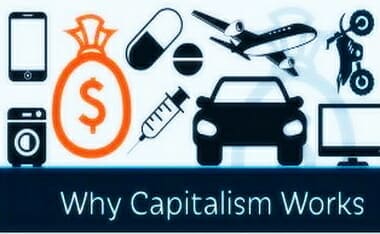This post is connected with another that is similar in it’s point.
Here, Thomas Sowell writes about the pernicious lie that comes from the Left by speaking about a great book by Arthur C. Brooks from AEI. What prompted me to post this is the indoctrination of our youth in this Facebook post that is horribly wrong in many respects:
“But seriously, to claim that we live in a post racial era is the epitome of absurdity. Although i’m all about forging unity we can’t do so while ignoring the reality of racial injustice, white supremacy, and national oppression in this country. Malcolm X perhaps said it best when he said you can’t have capitalism without racism. The capitalist system thrives off of racism and the division it creates amongst the masses of people. To fight tooth and nail against this order exploitation requires a relentless struggle against racism,white privilege, and all forms of bigotry.”
BONO on the free markets:
Here is Thomas Sowell’s review of Arthur Brooks book… there is the pencil example by Nobel winning economist Milton Freidman as well as an Artur C. Brooks presentation at the end. Econ class 150 is in session:
More frightening than any particular beliefs or policies is an utter lack of any sense of a need to test those beliefs and policies against hard evidence. Mistakes can be corrected by those who pay attention to facts but dogmatism will not be corrected by those who are wedded to a vision.
One of the most pervasive political visions of our time is the vision of liberals as compassionate and conservatives as less caring.
[….]
A new book, titled Who Really Cares by Arthur C. Brooks examines the actual behavior of liberals and conservatives when it comes to donating their own time, money, or blood for the benefit of others. It is remarkable that beliefs on this subject should have become conventional, if not set in concrete, for decades before anyone bothered to check these beliefs against facts.
What are those facts?
People who identify themselves as conservatives donate money to charity more often than people who identify themselves as liberals. They donate more money and a higher percentage of their incomes.
It is not that conservatives have more money. Liberal families average 6 percent higher incomes than conservative families.
You may recall a flap during the 2000 election campaign when the fact came out that Al Gore donated a smaller percentage of his income to charity than the national average. That was perfectly consistent with his liberalism.
So is the fact that most of the states that voted for John Kerry during the 2004 election donated a lower percentage of their incomes to charity than the states that voted for George W. Bush.
Conservatives not only donate more money to charity than liberals do, conservatives volunteer more time as well. More conservatives than liberals also donate blood.
According to Professor Brooks: “If liberals and moderates gave blood at the same rate as conservatives, the blood supply of the United States would jump about 45 percent.”
Professor Brooks admits that the facts he uncovered were the opposite of what he expected to find — so much so that he went back and checked these facts again, to make sure there was no mistake.
What is the reason why some people are liberals and others are conservatives, if it is not that liberals are more compassionate?
Fundamental differences in ideology go back to fundamental assumptions about human nature. Based on one set of assumptions, it makes perfect sense to be a liberal. Based on a different set of assumptions, it makes perfect sense to be a conservative.
The two visions are not completely symmetrical, however. For at least two centuries, the vision of the left has included a belief that those with that vision are morally superior, more caring and more compassionate.
[….]
The two visions are different in another way. The vision of the left exalts the young especially as idealists while the more conservative vision warns against the narrowness and shallowness of the inexperienced. This study found young liberals to make the least charitable contributions of all, whether in money, time or blood. Idealism in words is not idealism in deeds.
Here is Brooks short presentation
Some Later Additions:

